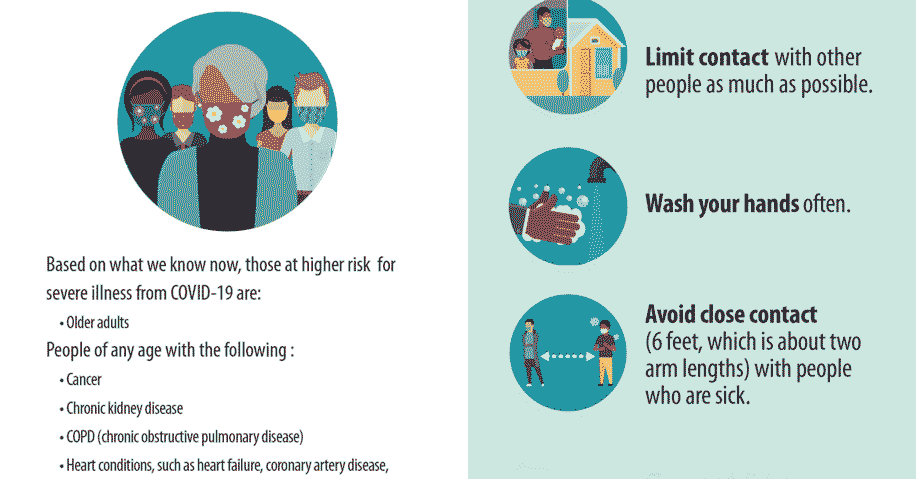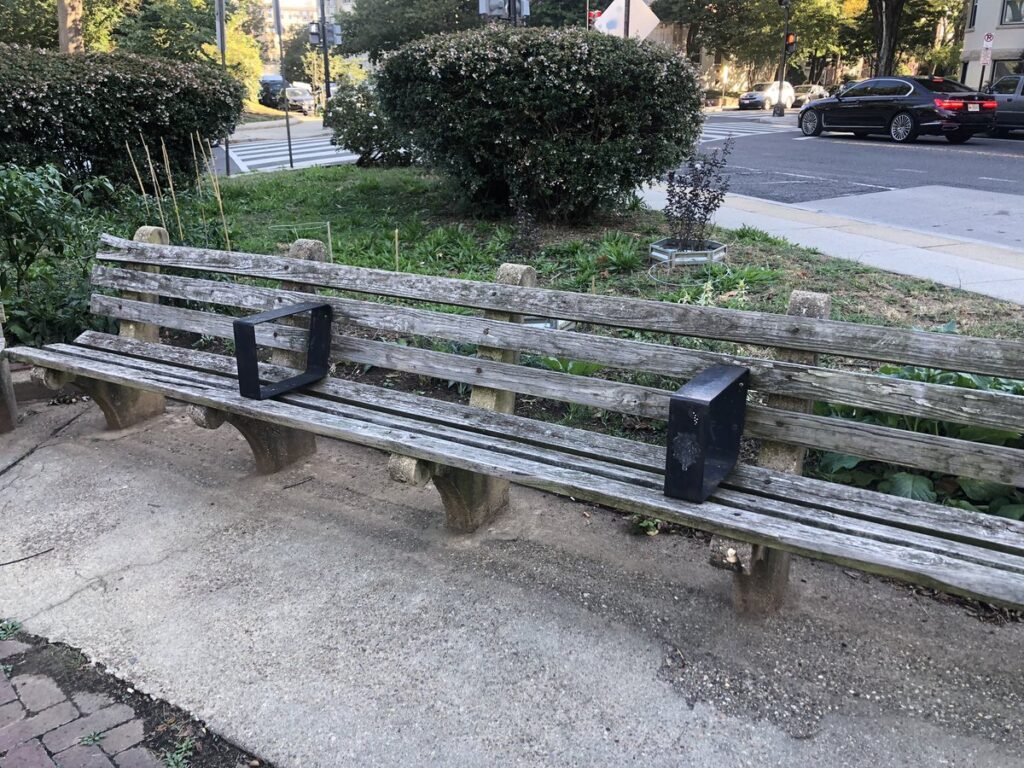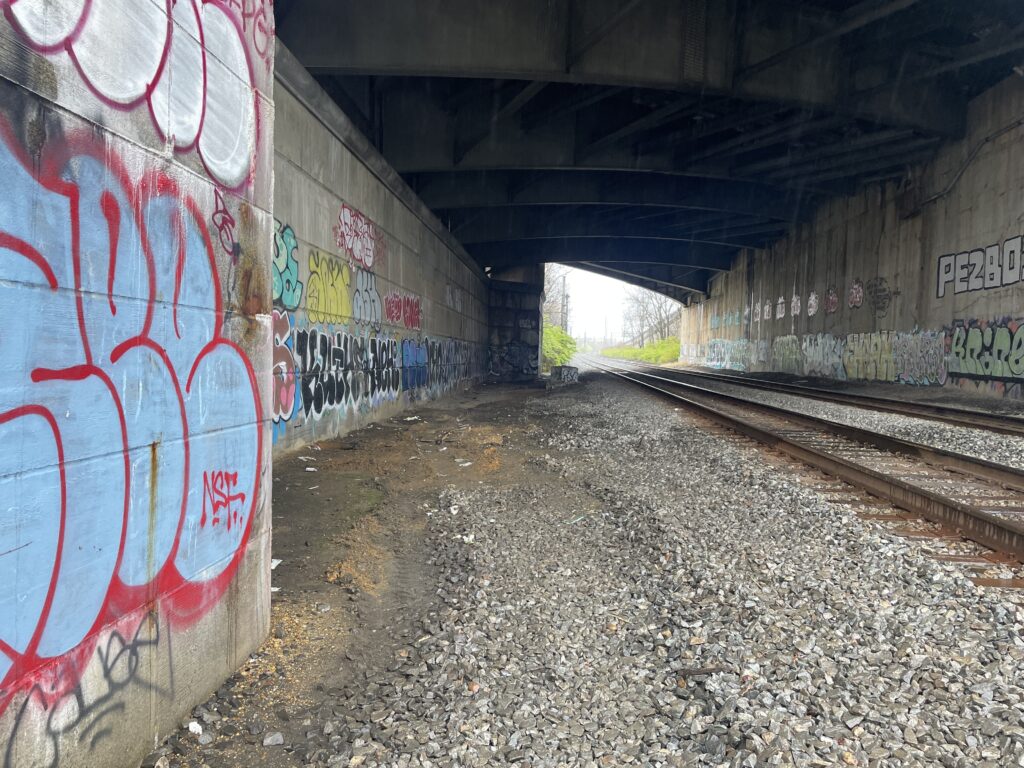The District is expanding its hotel accommodations for individuals experiencing homelessness that might be at greater risk of contracting COVID-19, such as the elderly or those with prior medical conditions. The Department of Human Services began moving clients into a third Pandemic Emergency Program for Highly Vulnerable Individuals (PEP-V) site last month at the Fairfield Inn on New York Ave. NE.
The Fairfield Inn added 115 rooms of capacity and joined the Hotel Arboretum, which it shares a parking lot with, and the Holiday Inn on Rhode Island Ave. NW as PEP-V sites. The other two locations provide 109 rooms and 193 rooms, respectively. D.C. opened three PEP-V sites soon after the public health emergency was declared in March, but DHS reduced that number to two in July.
The Hotel Arboretum by Holiday Inn Express and The Fairfield Inn & Suites by Marriott Washington are located near the intersection of New York Ave. NE and Bladensburg Rd. NE.
Seventy-five percent of PEP-V funding comes from FEMA. DHS Chief of Staff Larry Handerhan said the department is “hoping [this federal funding stream] continues during the duration of the public health emergency.”
Since PEP-V sites opened in March, 488 people have stayed at the hotels and 249 of those individuals have been “matched” to housing, 55 of whom had moved in at the time of publication. Current capacity at the three PEP-V hotels is 417 rooms. Each resident is issued a rapid COVID-19 test before they are admitted to the hotels to make sure they are negative. If the test comes back positive they are placed at a separate hotel reserved for isolation and quarantine space.
D.C. paused its “coordinated entry” system for matching people to housing assistance when the pandemic hit in March, but resumed the program in May and adjusted it to target people who qualify for PEP-V for housing as these individuals were seen as more vulnerable and could be easily located.
Proactive vs. reactive
While PEP-V hotels are a preventative measure to keep vulnerable individuals from contracting COVID-19, Isolation and Quarantine (ISAQ) sites, also hotels contracted by the city, are for individuals who have tested positive or been exposed to the virus who cannot safely quarantine anywhere else. The Department of Human Services has one ISAQ site still running, down from three earlier in the year. DHS staff said they do not publicly disclose the ISAQ site’s location in order to protect the privacy of the people staying there. As of an Oct. 30 DHS briefing, 63 people were in remote quarantine with 37 of them coming from shelters. The city’s daily coronavirus data has not included a public number for how many people are in its ISAQ site since Oct. 28.
At its highest point thus far, there were 360 people in isolation and quarantine on May 7. Two hundred and seventy-six of them were “from shelter, or unsheltered.”

Individuals staying at shelters early in the pandemic were upset by the lack of communication about the virus. William Long, a 59-year-old native Washingtonian who previously stayed at the New York Avenue men’s shelter said in an April interview, “They didn’t tell you anything about how people in the shelter are actually doing. I kept hearing guys say people had left and been taken to quarantine.”
Long said he directly asked a worker at the shelter if there had been any cases among the residents and said the person refused to answer. “He said, ‘I’m not gonna tell you that. You need to figure that out for yourself.’” After realizing that he might have been exposed, Long got tested. “I went straight to GW and got tested. It came back positive.”
He was taken to a Days Inn on Connecticut Ave. NW that was serving as an ISAQ site at the time. After two weeks, Long said he was “medically cleared” and told he could no longer stay in the hotel room. He began to feel ill soon after leaving the hotel, returned to GW Hospital, and tested positive for COVID-19 a second time. He was then quarantined at the Capitol Skyline Hotel in Southwest D.C. for a couple of weeks before again being told he had to leave.
In June, Long was interviewed by NBC Washington while camping in Franklin Park, just before everyone living there was forced to leave when the park closed for year-long renovations. He said he felt better taking his chances outside than going back to a shelter. While Long said he felt like a prisoner at the ISAQ, he greatly appreciated having a shower, toilet, safe sleeping space, and an outlet to charge his phone day-in and day-out.
[Read more: In March, men and women in city shelters described social distancing as impossible]
People who are at ISAQ sites are meant to stay there until they are medically cleared, according to Zelinger, the DHS director. “We don’t put guards at the doors. I mean we are not policing people,” she said. “The same way if you or I were exposed and called by the contact tracers from D.C. Health and told that we had been exposed and we should self isolate at home, nobody would be standing outside our door to enforce that.”
Long’s experience at the Days Inn ISAQ site in April contradicts the current policy described by Zeilinger. He said an ambulance took him to the hotel, where security guards then stood by his door.
While people were free to leave, Long said the catch was that if you left quarantine, you could not return. Another person staying in one of the hotels, who spoke under the condition of anonymity out of fear of retaliation, independently reported the same policy. “Anyone can leave, but if you do, you can’t come back,” they said in May, at the height of demand for ISAQ space for people experiencing homelessness. “You pack your stuff up and they put you on the street.”
Expanding as the health crisis continues
The Fairfield Inn PEP-V site began operating Oct. 12 with people moving in on Oct. 14. “We’re still in the process of moving people in,” Zeilinger said. “We’ve done that in a staggered way to allow for that roommate matching work and we are working closely with Unity [Health Care] and we’re not filled up yet. We’ve got about 81 people at this point who have moved in.” DHS plans to place 40 more individuals at the hotel each week over the course of a 5-week period. The goal is to have 90% of rooms filled across all PEP-V sites by Dec. 1. Currently, there are 466 referrals on the PEP-V waitlist.
[Read more: DHS partnered with Unity Health Care to screen shelter residents for COVID-19]
As long as the PEP-V program is able to run, DHS does not cap how long a client can stay. “On average, the length of stay so far has been 123 days and people would either exit to permanent housing or they no longer wish to stay in the program or for other reasons where it just hasn’t been an appropriate fit,” Zeilinger said.

In an effort to expand the program, DHS has also begun introducing double occupancy across all PEP-V sites. This month, individuals staying at PEP-V sites will share rooms unless they have certain medical conditions or other factors. So far, 91 clients share a room with another client. DHS looked at examples from Connecticut and New York to come to the decision.
“That’s not going to work for me,” a PEP-V client told Street Sense Media in October when the change was advertised. “If we’re both in the room all day, that means wearing a mask all day. And my sleeping is all messed up, so I’m usually up at night. But now I won’t be able to make any noise while I’m awake because I’ll have a roommate that’s trying to sleep.”

Going forward, all new PEP-V intakes will come in pairs unless a single intake can be placed with an existing PEP-V client in Hotel Arboretum or the Holiday Inn locations. The change will allow an additional 200 people to stay at the hotels.
Clients who are expected to receive a roommate will be notified 30 days in advance and discuss with their case managers any preferences they have based on health, gender, employment, and history. Zelinger said DHS wants the clients to feel safe and comfortable in the environment they are in and will work to accommodate reasonable requests not to have a roommate on the grounds of medical conditions.
In-person medical services, which include staff going to clients’ rooms for check-ins or to check their vital signs, will be available five days a week at the Fairfield Inn and the Holiday Inn starting this week, and six days a week at the Hotel Arboretum which is housing those with more complex medical needs. Zeilinger said DHS works with clients and Unity Health Care to decide how often medical care needs to be available. “For the most part, it’s just based on what people present as needing and also what they want,” Zeilinger said. “Not everybody wants to be checked on by a doctor every day if they feel fine and there’s no need.”
The goal of the PEP-V program is to provide clients resources to transition into permanent housing, according to DHS. The department has made an updated PEP-V agreement that asks clients to agree to weekly meetings with case managers to find permanent housing or another exit plan for when they leave the hotel. The agency has offered transportation to visit potential units for lease and assistance with housing documentation.
Bill Myers contributed reporting.
CORRECTION (11.13.2020)
This article initially stated that the Holiday Inn contracted for use as a PEP-V site is located on Rhode Island Avenue Northeast. The hotel is located on Rhode Island Avenue Northwest.








